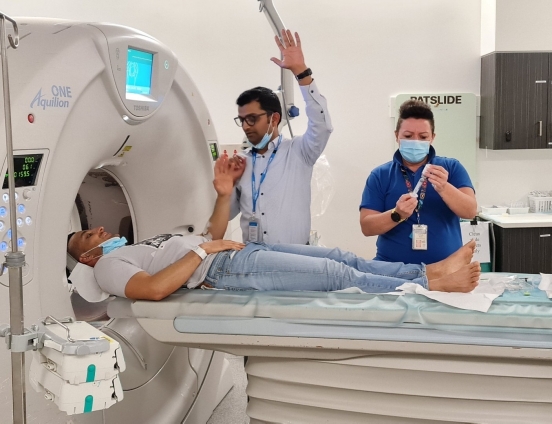
More than 27,400 Australians had a stroke for the first time in 2020 – that is one stroke every 19 minutes. Stroke is one of Australia’s biggest killers. It kills more women than breast cancer and more men than prostate cancer.
During a stroke more than 1.9 million brain cells die each minute. The longer a stroke remains untreated, the greater the chance of stroke-related brain damage, disability and death, so rapid treatment is critical.
Yesterday, Gold Coast Health stroke expert Dr Darshan Shah and his team treated stroke patient Lucas within a lightning-fast time of 50 minutes!
“When a patient presents with a stroke, every minute is critical. Yesterday, we had a patient arrive at GCUH whom we managed to treat within 50 minutes from the onset of symptoms. The national average is approximately 180 minutes," Dr Shah said.
“Symptom onset to treatment time is the time from symptoms to thrombolysis clot-dissolving drug administration, and ‘door to needle’ is time from arrival to ED to treatment. These are time metrics commonly used in the stroke field and are a very high predictor of patient outcomes. The earlier the treatment better the outcome! These times for Lucas were only 50 and 26 minutes, with national averages of approximately 180 and 90 minutes, respectively.
“He and his partner did the right thing. They quickly recognised his symptoms and sought urgent medical attention. The speed of his treatment resulted in complete recovery of his arm weakness and speech deficit within hours,” Dr Shah said.
This National Stroke Week (2-8 August), Dr Shah is encouraging the community to share the F.A.S.T message with family and friends.
“Using the F.A.S.T. test involves asking these simple questions: Face- Check their face. Has their mouth drooped? Arms- Can they lift both arms? Speech- Is their speech slurred? Do they understand you? Time- Time is critical. If you see any of these signs, call triple zero (000) immediately,” he said.



